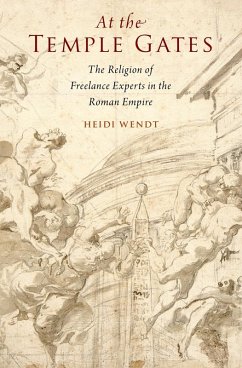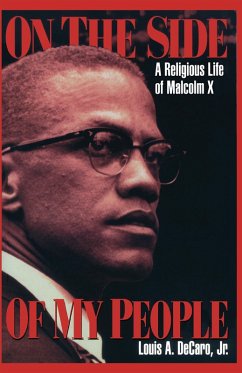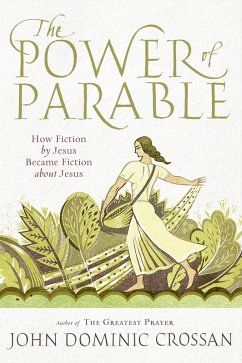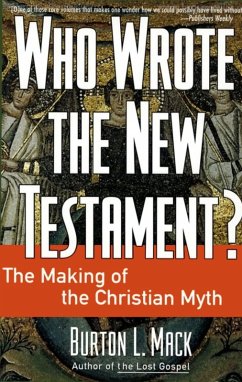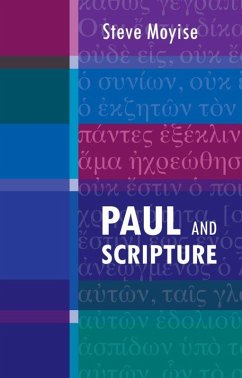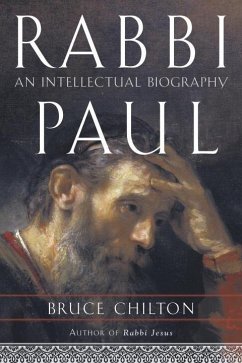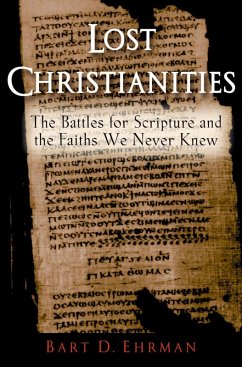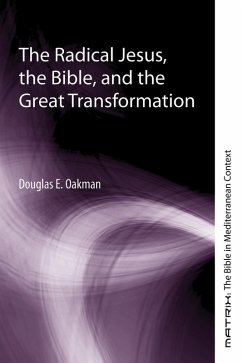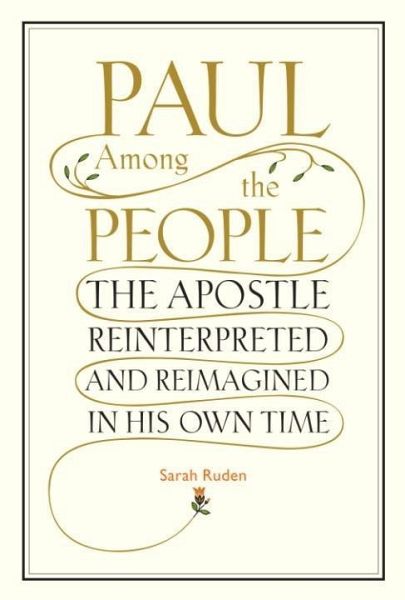
Paul Among the People (eBook, ePUB)
The Apostle Reinterpreted and Reimagined in His Own Time

PAYBACK Punkte
3 °P sammeln!
It is a common-and fundamental-misconception that Paul told people how to live. Apart from forbidding certain abusive practices, he never gives any precise instructions for living. It would have violated his two main social principles: human freedom and dignity, and the need for people to love one another. Paul was a Hellenistic Jew, originally named Saul, from the tribe of Benjamin, who made a living from tent making or leatherworking. He called himself the "Apostle to the Gentiles" and was the most important of the early Christian evangelists. Paul is not easy to understand. The Greeks and R...
It is a common-and fundamental-misconception that Paul told people how to live. Apart from forbidding certain abusive practices, he never gives any precise instructions for living. It would have violated his two main social principles: human freedom and dignity, and the need for people to love one another. Paul was a Hellenistic Jew, originally named Saul, from the tribe of Benjamin, who made a living from tent making or leatherworking. He called himself the "Apostle to the Gentiles" and was the most important of the early Christian evangelists. Paul is not easy to understand. The Greeks and Romans themselves probably misunderstood him or skimmed the surface of his arguments when he used terms such as "law" (referring to the complex system of Jewish religious law in which he himself was trained). But they did share a language-Greek-and a cosmopolitan urban culture, that of the Roman Empire. Paul considered evangelizing the Greeks and Romans to be his special mission. "For you were called to freedom, brothers and sisters; only do not use your freedom as an opportunity for self-indulgence, but through love become slaves to one another. For the whole law is summed up in a single commandment, 'You shall love your neighbor as yourself.'" The idea of love as the only rule was current among Jewish thinkers of his time, but the idea of freedom being available to anyone was revolutionary. Paul, regarded by Christians as the greatest interpreter of Jesus' mission, was the first person to explain how Christ's life and death fit into the larger scheme of salvation, from the creation of Adam to the end of time. Preaching spiritual equality and God's infinite love, he crusaded for the Jewish Messiah to be accepted as the friend and deliverer of all humankind. In Paul Among the People, Sarah Ruden explores the meanings of his words and shows how they might have affected readers in his own time and culture. She describes as well how his writings represented the new church as an alternative to old ways of thinking, feeling, and living. Ruden translates passages from ancient Greek and Roman literature, from Aristophanes to Seneca, setting them beside famous and controversial passages of Paul and their key modern interpretations. She writes about Augustine; about George Bernard Shaw's misguided notion of Paul as "the eternal enemy of Women"; and about the misuse of Paul in the English Puritan Richard Baxter's strictures against "flesh-pleasing." Ruden makes clear that Paul's ethics, in contrast to later distortions, were humane, open, and responsible. Paul Among the People is a remarkable work of scholarship, synthesis, and understanding; a revelation of the founder of Christianity.
Dieser Download kann aus rechtlichen Gründen nur mit Rechnungsadresse in A, B, BG, CZ, D, DK, EW, E, FIN, F, GR, HR, H, I, LT, L, LR, NL, PL, P, R, S, SLO, SK ausgeliefert werden.




